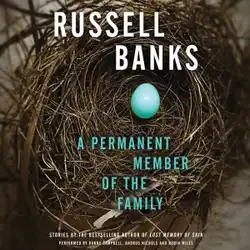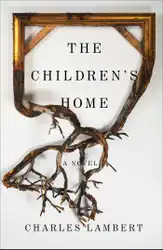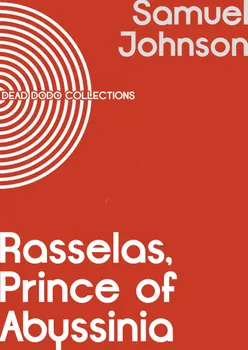While the story is thematically similar to Candide by Voltaire, also published early in 1759 – both concern young men travelling in the company of honoured teachers, encountering and examining human suffering in an attempt to determine the root of happiness – their root concerns are distinctly different. Voltaire was very directly satirising the widely read philosophical work by Gottfried Leibniz, particularly the Theodicee, in which Leibniz asserts that the world, no matter how we may perceive it, is necessarily the "best of all possible worlds". In contrast the question Rasselas confronts most directly is whether or not humanity is essentially capable of attaining happiness. Writing as a devout Christian, Johnson makes through his characters no blanket attacks on the viability of a religious response to this question, as Voltaire does, and while the story is in places light and humorous, it is not a piece of satire, as is Candide.

Harvard Classics: All 71 Volumes
Johann Wolfgang von Goethe, Gotthold Ephraim Lessing, Bjørnstjerne Bjørnson, Thomas Carlyle, Theodor Storm, Plato, Theodor Fontane, René Descartes, Gottfried Keller, Mark Twain, Immanuel Kant, Charles Darwin, Martin Luther, Robert Louis Stevenson, William Shakespeare, Dante Alighieri, Euripides, Percy Bysshe Shelley, Charles Lamb, Henry David Thoreau, Henry James, Samuel Johnson, John Stuart Mill, Victor Hugo, David Hume, Joseph Addison, Jane Austen, John Locke, John Fletcher, Francis Beaumont, Leigh Hunt, Epictetus, Alphonse Daudet, Thomas De Quincey, Guy de Maupassant, George Eliot, Walter Scott, Laurence Sterne, Samuel Taylor Coleridge, Jonathan Swift, Christopher Marlowe, Wilhelm Grimm, William Hazlitt, Marcus Tullius Cicero, Daniel Defoe, Aesop, Richard Henry Dana, Henry Fielding, John Dryden, Philip Massinger, Pedro Calderón de la Barca, Bret Harte, George Sand, John Ruskin, Oliver Wendell Holmes, Ernest Renan, Robert Burns, David Garrick, Ralph Waldo Emerson, John Webster, Washington Irving, Izaak Walton, John Bunyan, Juan Valera, Alfred de Musset, James Russell Lowell, Charles Augustin Sainte-Beuve, Nathaniel Hawthorne, Homer, Edmund Burke, Plutarch, Molière, Aeschylus, Michael Faraday, Sophocles, William Makepeace Thackeray, Benjamin Franklin, Edward Everett Hale, Pierre Corneille, Jean Racine, Voltaire, Robert Browning, Oliver Goldsmith, Thomas Dekker, John Milton, Aristophanes, Blaise Pascal, Virgil, Richard Brinsley Sheridan, Simon Newcomb, William Penn, Walter Bigges, Philip Sidney, Herodotus, Walter Raleigh, Francis Bacon, Giuseppe Mazzini, Francis Pretty, George Berkeley, Thomas Hobbes, Adam Smith, Alessandro Manzoni, Abraham Cowley, Michel de Montaigne, Ben Jonson, John Woolman, Benvenuto Cellini, Sydney Smith, Jean Froissart, William Henry Harrison, William Harvey, Marcus Aurelius, Hans Christian Andersen, Thomas Malory, George Gordon Byron, Thomas à Kempis, Ivan Turgenev, Richard Steele, Thomas Browne, Archibald Geikie, Thomas Babington Macaulay, Leo Tolstoy, Fyodor Dostoevsky, Tacitus, William Roper, Hippocrates, Miguel de Cervantes, Thomas More, Friedrich von Schiller, Philip Nichols, Louis Pasteur, Joseph Lister, Jean Jacques Rousseau, Pliny the Younger, Charles W. Eliot, Edgar Alan Poe, Saint Augustine, Hermann Ludwig Ferdinand von Helmholtz, Francis Drake, Edward Haies, Niccolo Machiavelli, Ambroise Paré, William A. Neilson, Honoré Balzac, Alexander L. Kielland
book
The Harvard Classics: Complete 51-Volume Collection : The Greatest Works of World Literature
Johann Wolfgang von Goethe, Gotthold Ephraim Lessing, Thomas Carlyle, Plato, René Descartes, Immanuel Kant, Charles Darwin, Martin Luther, Robert Louis Stevenson, William Shakespeare, Dante Alighieri, Euripides, Percy Bysshe Shelley, Charles Lamb, Henry David Thoreau, Samuel Johnson, John Stuart Mill, David Hume, Joseph Addison, John Locke, John Fletcher, Francis Beaumont, Leigh Hunt, Epictetus, Thomas De Quincey, Samuel Taylor Coleridge, Jonathan Swift, Christopher Marlowe, Jacob Grimm, Wilhelm Grimm, William Hazlitt, Marcus Tullius Cicero, Daniel Defoe, Aesop, Richard Henry Dana, John Dryden, Philip Massinger, Pedro Calderón de la Barca, John Ruskin, Oliver Wendell Holmes, Ernest Renan, Robert Burns, David Garrick, Ralph Waldo Emerson, John Webster, Izaak Walton, John Bunyan, James Russell Lowell, Charles Augustin Sainte-Beuve, Homer, Edmund Burke, Plutarch, Molière, Aeschylus, Michael Faraday, Sophocles, William Makepeace Thackeray, Benjamin Franklin, Pierre Corneille, Jean Racine, Voltaire, Robert Browning, Oliver Goldsmith, Thomas Dekker, John Milton, Aristophanes, Blaise Pascal, Virgil, Simon Newcomb, William Penn, Walter Bigges, Philip Sidney, Herodotus, Walter Raleigh, Francis Bacon, Giuseppe Mazzini, Francis Pretty, George Berkeley, Thomas Hobbes, Adam Smith, Alessandro Manzoni, Abraham Cowley, Michel de Montaigne, Ben Jonson, John Woolman, Benvenuto Cellini, Sydney Smith, Jean Froissart, William Henry Harrison, William Harvey, Marcus Aurelius, Hans Christian Andersen, Thomas Malory, George Gordon Byron, Thomas à Kempis, Richard Steele, Thomas Browne, Archibald Geikie, Thomas Babington Macaulay, Tacitus, William Roper, Hippocrates, Miguel de Cervantes, Thomas More, Friedrich von Schiller, Philip Nichols, Louis Pasteur, Joseph Lister, Jean Jacques Rousseau, Pliny the Younger, Edgar Alan Poe, Saint Augustine, Brinsley Sheridan, Hermann Ludwig Ferdinand von Helmholtz, Francis Drake, Edward Haies, Niccolo Machiavelli, Ambroise Paré, William A. Neilson
book
Harvard Classics: Complete 51-Volume Anthology : The Greatest Works of World Literature
Johann Wolfgang von Goethe, Gotthold Ephraim Lessing, Thomas Carlyle, Plato, René Descartes, Immanuel Kant, Charles Darwin, Martin Luther, Robert Louis Stevenson, William Shakespeare, Dante Alighieri, Euripides, Percy Bysshe Shelley, Charles Lamb, Henry David Thoreau, Samuel Johnson, John Stuart Mill, David Hume, Joseph Addison, John Locke, John Fletcher, Francis Beaumont, Leigh Hunt, Epictetus, Thomas De Quincey, Samuel Taylor Coleridge, Jonathan Swift, Christopher Marlowe, Jacob Grimm, Wilhelm Grimm, William Hazlitt, Marcus Tullius Cicero, Daniel Defoe, Aesop, Richard Henry Dana, John Dryden, Philip Massinger, Pedro Calderón de la Barca, John Ruskin, Oliver Wendell Holmes, Ernest Renan, Robert Burns, David Garrick, Ralph Waldo Emerson, John Webster, Izaak Walton, John Bunyan, James Russell Lowell, Charles Augustin Sainte-Beuve, Homer, Edmund Burke, Plutarch, Molière, Aeschylus, Michael Faraday, Sophocles, William Makepeace Thackeray, Benjamin Franklin, Pierre Corneille, Jean Racine, Voltaire, Robert Browning, Oliver Goldsmith, Thomas Dekker, John Milton, Aristophanes, Blaise Pascal, Virgil, Simon Newcomb, William Penn, Walter Bigges, Philip Sidney, Herodotus, Walter Raleigh, Francis Bacon, Giuseppe Mazzini, Francis Pretty, George Berkeley, Thomas Hobbes, Adam Smith, Alessandro Manzoni, Abraham Cowley, Michel de Montaigne, Ben Jonson, John Woolman, Benvenuto Cellini, Sydney Smith, Jean Froissart, William Henry Harrison, William Harvey, Marcus Aurelius, Hans Christian Andersen, Thomas Malory, George Gordon Byron, Thomas à Kempis, Richard Steele, Thomas Browne, Archibald Geikie, Thomas Babington Macaulay, Tacitus, William Roper, Hippocrates, Miguel de Cervantes, Thomas More, Friedrich von Schiller, Philip Nichols, Louis Pasteur, Joseph Lister, Jean Jacques Rousseau, Pliny the Younger, Edgar Alan Poe, Saint Augustine, Brinsley Sheridan, Hermann Ludwig Ferdinand von Helmholtz, Francis Drake, Edward Haies, Niccolo Machiavelli, Ambroise Paré, William A. Neilson
book
Harvard's Classics Collection: Complete 71 Volumes : The Five Foot Shelf & The Shelf of Fiction - The Classic Literature & The Greatest Works of Fiction from Antics to Modern Age
Johann Wolfgang von Goethe, Gotthold Ephraim Lessing, Bjørnstjerne Bjørnson, Thomas Carlyle, Theodor Storm, Plato, Theodor Fontane, René Descartes, Gottfried Keller, Mark Twain, Immanuel Kant, Charles Darwin, Martin Luther, Robert Louis Stevenson, William Shakespeare, Dante Alighieri, Euripides, Percy Bysshe Shelley, Charles Lamb, Henry David Thoreau, Henry James, Samuel Johnson, John Stuart Mill, Victor Hugo, David Hume, Joseph Addison, Jane Austen, John Locke, John Fletcher, Francis Beaumont, Leigh Hunt, Epictetus, Alphonse Daudet, Thomas De Quincey, Guy de Maupassant, George Eliot, Walter Scott, Laurence Sterne, Samuel Taylor Coleridge, Jonathan Swift, Christopher Marlowe, Wilhelm Grimm, William Hazlitt, Marcus Tullius Cicero, Daniel Defoe, Aesop, Richard Henry Dana, Henry Fielding, John Dryden, Philip Massinger, Pedro Calderón de la Barca, Bret Harte, George Sand, John Ruskin, Oliver Wendell Holmes, Ernest Renan, Robert Burns, David Garrick, Ralph Waldo Emerson, John Webster, Washington Irving, Izaak Walton, John Bunyan, Juan Valera, Alfred de Musset, James Russell Lowell, Charles Augustin Sainte-Beuve, Nathaniel Hawthorne, Homer, Edmund Burke, Plutarch, Molière, Aeschylus, Michael Faraday, Sophocles, William Makepeace Thackeray, Benjamin Franklin, Edward Everett Hale, Pierre Corneille, Jean Racine, Voltaire, Robert Browning, Oliver Goldsmith, Thomas Dekker, John Milton, Aristophanes, Blaise Pascal, Virgil, Richard Brinsley Sheridan, Simon Newcomb, William Penn, Walter Bigges, Philip Sidney, Herodotus, Walter Raleigh, Francis Bacon, Giuseppe Mazzini, Francis Pretty, George Berkeley, Thomas Hobbes, Adam Smith, Alessandro Manzoni, Abraham Cowley, Michel de Montaigne, Ben Jonson, John Woolman, Benvenuto Cellini, Sydney Smith, Jean Froissart, William Henry Harrison, William Harvey, Marcus Aurelius, Hans Christian Andersen, Thomas Malory, George Gordon Byron, Thomas à Kempis, Ivan Turgenev, Richard Steele, Thomas Browne, Archibald Geikie, Thomas Babington Macaulay, Leo Tolstoy, Fyodor Dostoevsky, Tacitus, William Roper, Hippocrates, Miguel de Cervantes, Thomas More, Friedrich von Schiller, Philip Nichols, Louis Pasteur, Joseph Lister, Jean Jacques Rousseau, Pliny the Younger, Charles W. Eliot, Edgar Alan Poe, Saint Augustine, Hermann Ludwig Ferdinand von Helmholtz, Francis Drake, Edward Haies, Niccolo Machiavelli, Ambroise Paré, William A. Neilson, Honoré Balzac, Alexander L. Kielland
book
The Harvard Classics Anthology : 51 Volumes of Nonfiction Books + 20 Volumes of the Greatest Works of Fiction
Johann Wolfgang von Goethe, Gotthold Ephraim Lessing, Bjørnstjerne Bjørnson, Thomas Carlyle, Theodor Storm, Charles Dickens, Plato, Theodor Fontane, René Descartes, Gottfried Keller, Mark Twain, Immanuel Kant, Charles Darwin, Martin Luther, Robert Louis Stevenson, William Shakespeare, Dante Alighieri, Euripides, Percy Bysshe Shelley, Charles Lamb, Henry David Thoreau, Henry James, Samuel Johnson, John Stuart Mill, Victor Hugo, Joseph Addison, Jane Austen, John Locke, John Fletcher, Francis Beaumont, Leigh Hunt, Epictetus, Alphonse Daudet, Thomas De Quincey, Guy de Maupassant, George Eliot, Walter Scott, Laurence Sterne, Samuel Taylor Coleridge, Jonathan Swift, Christopher Marlowe, Jacob Grimm, Wilhelm Grimm, William Hazlitt, Marcus Tullius Cicero, Daniel Defoe, Aesop, Richard Henry Dana, Henry Fielding, John Dryden, Philip Massinger, Pedro Calderón de la Barca, Bret Harte, George Sand, John Ruskin, Oliver Wendell Holmes, Ernest Renan, Robert Burns, David Garrick, Ralph Waldo Emerson, John Webster, Washington Irving, Izaak Walton, John Bunyan, Juan Valera, Alfred de Musset, James Russell Lowell, Charles Augustin Sainte-Beuve, Nathaniel Hawthorne, Homer, Edmund Burke, Plutarch, Molière, Aeschylus, Michael Faraday, Sophocles, William Makepeace Thackeray, Benjamin Franklin, Edward Everett Hale, Pierre Corneille, Jean Racine, Voltaire, Robert Browning, Oliver Goldsmith, Thomas Dekker, John Milton, Aristophanes, Blaise Pascal, Virgil, Richard Brinsley Sheridan, Simon Newcomb, William Penn, Walter Bigges, Philip Sidney, Herodotus, Walter Raleigh, Francis Bacon, Giuseppe Mazzini, Francis Pretty, George Berkeley, Thomas Hobbes, Adam Smith, Alessandro Manzoni, Abraham Cowley, Michel de Montaigne, Ben Jonson, John Woolman, Benvenuto Cellini, Sydney Smith, Jean Froissart, William Henry Harrison, William Harvey, Marcus Aurelius, Hans Christian Andersen, Thomas Malory, George Gordon Byron, Thomas à Kempis, Ivan Turgenev, Richard Steele, Thomas Browne, Archibald Geikie, Thomas Babington Macaulay, Leo Tolstoy, Fyodor Dostoevsky, Tacitus, William Roper, Hippocrates, Miguel de Cervantes, Thomas More, Friedrich von Schiller, Philip Nichols, Louis Pasteur, Joseph Lister, Jean Jacques Rousseau, Pliny the Younger, Charles W. Eliot, Edgar Alan Poe, Saint Augustine, Hermann Ludwig Ferdinand von Helmholtz, Francis Drake, Edward Haies, Niccolo Machiavelli, Ambroise Paré, William A. Neilson, Honoré Balzac, Alexander L. Kielland
book
A Grammar of the English Tongue
Samuel Johnson
audiobookbook
Harvard on the Beach : The Complete 71 Volumes of Harvard Classics (The Five Foot Shelf & The Shelf of Fiction): The Infamous Anthology of the Greatest Works of World Literature
George Gordon Byron, Johann Wolfgang von Goethe, Christopher Marlowe, Benjamin Franklin, John Woolman, William Penn, Plato, Epictetus, Marcus Aurelius, Francis Bacon, John Milton, Thomas Browne, Ralph Waldo Emerson, Robert Burns, Saint Augustine, Thomas à Kempis, Aeschylus, Sophocles, Euripides, Aristophanes, Marcus Tullius Cicero, Pliny the Younger, Adam Smith, Charles Darwin, Plutarch, Virgil, Miguel de Cervantes, John Bunyan, Izaak Walton, Aesop, Wilhelm Grimm, Jacob Grimm, Hans Christian Andersen, John Dryden, Richard Brinsley Sheridan, David Garrick, Oliver Goldsmith, Percy Bysshe Shelley, Robert Browning, Dante Alighieri, Alessandro Manzoni, Homer, Richard Henry Dana, Edmund Burke, John Stuart Mill, Thomas Carlyle, Pedro Calderón de la Barca, Pierre Corneille, Jean Racine, Molière, Gotthold Ephraim Lessing, Friedrich von Schiller, Philip Sidney, Ben Jonson, Abraham Cowley, Joseph Addison, Richard Steele, Jonathan Swift, Daniel Defoe, Samuel Johnson, David Hume, Sydney Smith, Samuel Taylor Coleridge, William Hazlitt, Leigh Hunt, Charles Lamb, Thomas De Quincey, Thomas Babington Macaulay, William Makepeace Thackeray, John Ruskin
book
The Harvard Classics Anthology : 51 Volumes of Nonfiction Books + 20 Volumes of the Greatest Works of Fiction
Benjamin Franklin, John Woolman, William Penn, Plato, Epictetus, Marcus Aurelius, Francis Bacon, John Milton, Thomas Browne, Ralph Waldo Emerson, Robert Burns, Saint Augustine, Thomas à Kempis, Aeschylus, Sophocles, Euripides, Aristophanes, Marcus Tullius Cicero, Pliny the Younger, Adam Smith, Charles Darwin, Plutarch, Virgil, Miguel de Cervantes, John Bunyan, Izaak Walton, Aesop, Wilhelm Grimm, Jacob Grimm, Hans Christian Andersen, John Dryden, Richard Brinsley Sheridan, David Garrick, Oliver Goldsmith, Percy Bysshe Shelley, Robert Browning, George Gordon Byron, Johann Wolfgang von Goethe, Christopher Marlowe, Dante Alighieri, Alessandro Manzoni, Homer, Richard Henry Dana, Edmund Burke, John Stuart Mill, Thomas Carlyle, Pedro Calderón de la Barca, Pierre Corneille, Jean Racine, Molière, Gotthold Ephraim Lessing, Friedrich von Schiller, Philip Sidney, Ben Jonson, Abraham Cowley, Joseph Addison, Richard Steele, Jonathan Swift, Daniel Defoe, Samuel Johnson, Sydney Smith, Samuel Taylor Coleridge, William Hazlitt, Leigh Hunt, Charles Lamb, Thomas De Quincey, Thomas Babington Macaulay, William Makepeace Thackeray, John Ruskin, Robert Louis Stevenson, Edgar Alan Poe, Henry David Thoreau, James Russell Lowell, Michael Faraday, Hermann Ludwig Ferdinand von Helmholtz, Simon Newcomb, Archibald Geikie, Benvenuto Cellini, Michel de Montaigne, Charles Augustin Sainte-Beuve, Ernest Renan, Immanuel Kant, Giuseppe Mazzini, Herodotus, Tacitus, Francis Drake, Philip Nichols, Francis Pretty, Walter Bigges, Edward Haies, Walter Raleigh, René Descartes, Voltaire, Jean Jacques Rousseau, Thomas Hobbes, Jean Froissart, Thomas Malory, William Henry Harrison, Niccolo Machiavelli, William Roper, Thomas More, Martin Luther, John Locke, George Berkeley, Hippocrates, Ambroise Paré, William Harvey, Oliver Wendell Holmes, Joseph Lister, Louis Pasteur, William Shakespeare, Thomas Dekker, Francis Beaumont, John Fletcher, John Webster, Philip Massinger, Blaise Pascal, Charles W. Eliot, William A. Neilson, Henry Fielding, Laurence Sterne, Jane Austen, Walter Scott, Charles Dickens, George Eliot, Nathaniel Hawthorne, Washington Irving, Bret Harte, Mark Twain, Edward Everett Hale, Henry James, Victor Hugo, Honoré Balzac, George Sand, Alfred de Musset, Alphonse Daudet, Gottfried Keller, Guy de Maupassant, Theodor Storm, Theodor Fontane, Leo Tolstoy, Fyodor Dostoevsky, Ivan Turgenev, Juan Valera, Bjørnstjerne Bjørnson, Alexander L. Kielland
book
Harvard's Classics Collection: Complete 71 Volumes : The Five Foot Shelf & The Shelf of Fiction - The Classic Literature & The Greatest Works of Fiction from Antics to Modern Age
Plato, Epictetus, Marcus Aurelius, Francis Bacon, John Milton, Thomas Browne, Benjamin Franklin, John Woolman, William Penn, Ralph Waldo Emerson, Robert Burns, Saint Augustine, Thomas à Kempis, Aeschylus, Sophocles, Euripides, Aristophanes, Marcus Tullius Cicero, Pliny the Younger, Adam Smith, Charles Darwin, Plutarch, Virgil, Miguel de Cervantes, John Bunyan, Izaak Walton, Aesop, Wilhelm Grimm, Hans Christian Andersen, John Dryden, Richard Brinsley Sheridan, David Garrick, Oliver Goldsmith, Percy Bysshe Shelley, Robert Browning, George Gordon Byron, Johann Wolfgang von Goethe, Christopher Marlowe, Dante Alighieri, Alessandro Manzoni, Homer, Richard Henry Dana, Edmund Burke, John Stuart Mill, Thomas Carlyle, Pedro Calderón de la Barca, Pierre Corneille, Jean Racine, Molière, Gotthold Ephraim Lessing, Friedrich von Schiller, Philip Sidney, Ben Jonson, Abraham Cowley, Joseph Addison, Richard Steele, Jonathan Swift, Daniel Defoe, Samuel Johnson, David Hume, Sydney Smith, Samuel Taylor Coleridge, William Hazlitt, Leigh Hunt, Charles Lamb, Thomas De Quincey, Thomas Babington Macaulay, William Makepeace Thackeray, John Ruskin, Robert Louis Stevenson, Edgar Alan Poe, Henry David Thoreau, James Russell Lowell, Michael Faraday, Hermann Ludwig Ferdinand von Helmholtz, Simon Newcomb, Archibald Geikie, Benvenuto Cellini, Michel de Montaigne, Charles Augustin Sainte-Beuve, Ernest Renan, Immanuel Kant, Giuseppe Mazzini, Herodotus, Tacitus, Francis Drake, Philip Nichols, Francis Pretty, Walter Bigges, Edward Haies, Walter Raleigh, René Descartes, Voltaire, Jean Jacques Rousseau, Thomas Hobbes, Jean Froissart, Thomas Malory, William Henry Harrison, Niccolo Machiavelli, William Roper, Thomas More, Martin Luther, John Locke, George Berkeley, Hippocrates, Ambroise Paré, William Harvey, Oliver Wendell Holmes, Joseph Lister, Louis Pasteur, William Shakespeare, Thomas Dekker, Francis Beaumont, John Fletcher, John Webster, Philip Massinger, Blaise Pascal, Charles W. Eliot, William A. Neilson, Henry Fielding, Laurence Sterne, Jane Austen, Walter Scott, George Eliot, Nathaniel Hawthorne, Washington Irving, Bret Harte, Mark Twain, Edward Everett Hale, Henry James, Victor Hugo, Honoré Balzac, George Sand, Alfred de Musset, Alphonse Daudet, Guy de Maupassant, Gottfried Keller, Theodor Storm, Theodor Fontane, Leo Tolstoy, Fyodor Dostoevsky, Ivan Turgenev, Juan Valera, Bjørnstjerne Bjørnson, Alexander L. Kielland
book
The Harvard Classics: Complete 51-Volume Collection : The Greatest Works of World Literature
Benjamin Franklin, Edmund Burke, Plato, Marcus Aurelius, William Shakespeare, Homer, Friedrich von Schiller, William Makepeace Thackeray, John Ruskin, Robert Louis Stevenson, Edgar Alan Poe, Henry David Thoreau, Voltaire, Jean Jacques Rousseau, Immanuel Kant, Thomas Hobbes, John Woolman, William Penn, Epictetus, Francis Bacon, John Milton, Thomas Browne, Ralph Waldo Emerson, Robert Burns, Saint Augustine, Thomas à Kempis, Aeschylus, Sophocles, Euripides, Aristophanes, Marcus Tullius Cicero, Pliny the Younger, Adam Smith, Charles Darwin, Plutarch, Virgil, Miguel de Cervantes, John Bunyan, Izaak Walton, Aesop, Wilhelm Grimm, Jacob Grimm, Hans Christian Andersen, John Dryden, Brinsley Sheridan, David Garrick, Oliver Goldsmith, Percy Bysshe Shelley, Robert Browning, George Gordon Byron, Johann Wolfgang von Goethe, Christopher Marlowe, Dante Alighieri, Alessandro Manzoni, Richard Henry Dana, John Stuart Mill, Thomas Carlyle, Pedro Calderón de la Barca, Pierre Corneille, Jean Racine, Molière, Gotthold Ephraim Lessing, Philip Sidney, Ben Jonson, Abraham Cowley, Joseph Addison, Richard Steele, Jonathan Swift, Daniel Defoe, Samuel Johnson, David Hume, Sydney Smith, Samuel Taylor Coleridge, William Hazlitt, Leigh Hunt, Charles Lamb, Thomas De Quincey, Thomas Babington Macaulay, James Russell Lowell, Michael Faraday, Hermann Ludwig Ferdinand von Helmholtz, Simon Newcomb, Archibald Geikie, Benvenuto Cellini, Michel de Montaigne, Charles Augustin Sainte-Beuve, Ernest Renan, Giuseppe Mazzini, Herodotus, Tacitus, Francis Drake, Philip Nichols, Francis Pretty, Walter Bigges, Edward Haies, Walter Raleigh, René Descartes, Jean Froissart, Thomas Malory, William Henry Harrison, Niccolo Machiavelli, William Roper, Thomas More, Martin Luther, John Locke, George Berkeley, Hippocrates, Ambroise Paré, William Harvey, Oliver Wendell Holmes, Joseph Lister, Louis Pasteur, Thomas Dekker, Francis Beaumont, John Fletcher, John Webster, Philip Massinger, Blaise Pascal, William A. Neilson
book
Harvard Classics: Complete 51-Volume Anthology : The Greatest Works of World Literature
Benjamin Franklin, Edmund Burke, Plato, Marcus Aurelius, William Shakespeare, Homer, Friedrich von Schiller, William Makepeace Thackeray, John Ruskin, Robert Louis Stevenson, Edgar Alan Poe, Henry David Thoreau, Voltaire, Jean Jacques Rousseau, Immanuel Kant, Thomas Hobbes, John Woolman, William Penn, Epictetus, Francis Bacon, John Milton, Thomas Browne, Ralph Waldo Emerson, Robert Burns, Saint Augustine, Thomas à Kempis, Aeschylus, Sophocles, Euripides, Aristophanes, Marcus Tullius Cicero, Pliny the Younger, Adam Smith, Charles Darwin, Plutarch, Virgil, Miguel de Cervantes, John Bunyan, Izaak Walton, Aesop, Wilhelm Grimm, Jacob Grimm, Hans Christian Andersen, John Dryden, Brinsley Sheridan, David Garrick, Oliver Goldsmith, Percy Bysshe Shelley, Robert Browning, George Gordon Byron, Johann Wolfgang von Goethe, Christopher Marlowe, Dante Alighieri, Alessandro Manzoni, Richard Henry Dana, John Stuart Mill, Thomas Carlyle, Pedro Calderón de la Barca, Pierre Corneille, Jean Racine, Molière, Gotthold Ephraim Lessing, Philip Sidney, Ben Jonson, Abraham Cowley, Joseph Addison, Richard Steele, Jonathan Swift, Daniel Defoe, Samuel Johnson, David Hume, Sydney Smith, Samuel Taylor Coleridge, William Hazlitt, Leigh Hunt, Charles Lamb, Thomas De Quincey, Thomas Babington Macaulay, James Russell Lowell, Michael Faraday, Hermann Ludwig Ferdinand von Helmholtz, Simon Newcomb, Archibald Geikie, Benvenuto Cellini, Michel de Montaigne, Charles Augustin Sainte-Beuve, Ernest Renan, Giuseppe Mazzini, Herodotus, Tacitus, Francis Drake, Philip Nichols, Francis Pretty, Walter Bigges, Edward Haies, Walter Raleigh, René Descartes, Jean Froissart, Thomas Malory, William Henry Harrison, Niccolo Machiavelli, William Roper, Thomas More, Martin Luther, John Locke, George Berkeley, Hippocrates, Ambroise Paré, William Harvey, Oliver Wendell Holmes, Joseph Lister, Louis Pasteur, Thomas Dekker, Francis Beaumont, John Fletcher, John Webster, Philip Massinger, Blaise Pascal, William A. Neilson
book
The Complete Harvard Classics - All 51 Volumes in One Edition : The Anthology of the Greatest Works of World Literature - Dr. Eliot's Five Foot Shelf
Plato, Marcus Aurelius, William Shakespeare, Benjamin Franklin, Homer, Friedrich von Schiller, William Makepeace Thackeray, John Ruskin, Robert Louis Stevenson, Edgar Alan Poe, Henry David Thoreau, Voltaire, Jean Jacques Rousseau, Immanuel Kant, Thomas Hobbes, John Woolman, William Penn, Epictetus, Francis Bacon, John Milton, Thomas Browne, Ralph Waldo Emerson, Robert Burns, Saint Augustine, Thomas à Kempis, Aeschylus, Sophocles, Euripides, Aristophanes, Marcus Tullius Cicero, Pliny the Younger, Adam Smith, Charles Darwin, Plutarch, Virgil, Miguel de Cervantes, John Bunyan, Izaak Walton, Aesop, Wilhelm Grimm, Jacob Grimm, Hans Christian Andersen, John Dryden, Richard Brinsley Sheridan, David Garrick, Oliver Goldsmith, Percy Bysshe Shelley, Robert Browning, George Gordon Byron, Johann Wolfgang von Goethe, Christopher Marlowe, Dante Alighieri, Alessandro Manzoni, Richard Henry Dana, Edmund Burke, John Stuart Mill, Thomas Carlyle, Pedro Calderón de la Barca, Pierre Corneille, Jean Racine, Molière, Gotthold Ephraim Lessing, Philip Sidney, Ben Jonson, Abraham Cowley, Joseph Addison, Richard Steele, Jonathan Swift, Daniel Defoe, Samuel Johnson, David Hume, Sydney Smith, Samuel Taylor Coleridge, William Hazlitt, Leigh Hunt, Charles Lamb, Thomas De Quincey, Thomas Babington Macaulay, James Russell Lowell, Michael Faraday, Hermann Ludwig Ferdinand von Helmholtz, Simon Newcomb, Archibald Geikie, Benvenuto Cellini, Michel de Montaigne, Charles Augustin Sainte-Beuve, Ernest Renan, Giuseppe Mazzini, Herodotus, Tacitus, Francis Drake, Philip Nichols, Francis Pretty, Walter Bigges, Edward Haies, Walter Raleigh, René Descartes, Jean Froissart, Thomas Malory, William Henry Harrison, Niccolo Machiavelli, William Roper, Thomas More, Martin Luther, John Locke, George Berkeley, Hippocrates, Ambroise Paré, William Harvey, Oliver Wendell Holmes, Joseph Lister, Louis Pasteur, Thomas Dekker, Francis Beaumont, John Fletcher, John Webster, Philip Massinger, Blaise Pascal, William A. Neilson
book

A Permanent Member of the Family
Russell Banks
audiobook
Madam President: A Novel
Nicolle Wallace
book
Crazy Paving : the brilliant addictive contemporary psychological suspense novel from the author of Apple Tree Yard
Louise Doughty
book
My New American Life : A Novel
Francine Prose
audiobook
The Children's Home: A Novel
Charles Lambert
book
Jane Slayre
Charlotte Bronte, Sherri Browning Erwin
book
The Wrath of N'Kai [Dramatized Adaptation] : Arkham Horror
Josh Reynolds
audiobook
The Secret History of Elizabeth Tudor, Vampire Slayer
Lucy Weston
book
Desperate Pastors' Wives
Ginger Kolbaba, Christy Scannell
book
The Behaviour of Love
Virginia Reeves
book
Wonder Girls
Catherine Jones
book
Loves Music, Loves To Dance
Mary Higgins Clark
book
